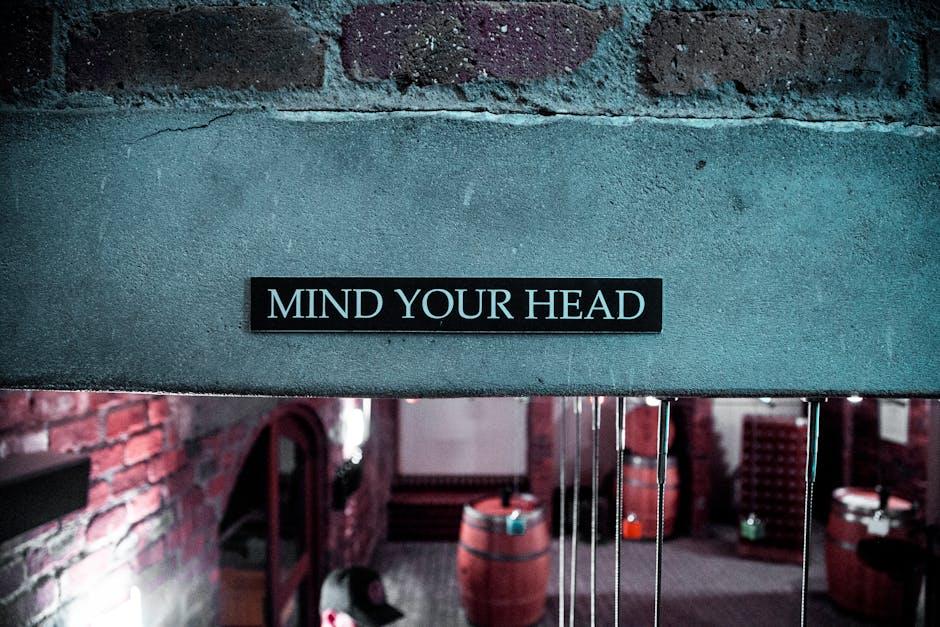Feeling down in the dumps? Like a grumpy cat that just got its fur wet? We’ve all been there, curled up in the fetal position, clutching a tub of ice cream, and wondering why our mood plummeted from “chipper” to “chipmunk on a bad day.” Depression has a sneaky way of coloring the world in shades of blue and gray, leaving us craving a magic cure-all. Spoiler alert: there isn’t one. But don’t fling your spoon away just yet! Enter mindfulness—a practice that’s less about chanting “om” and more about rewiring your brain with the stealthy finesse of a ninja. In this article, we’ll delve into the intriguing realm of mindfulness meditation and uncover how it can gently but effectively arm-wrestle your depression into submission. So, grab a cushion, put on your metaphorical meditation hat, and prepare to explore the witty, sometimes whimsical, but ultimately impactful world of mindfulness for depression. Your quest for mental serenity just got a whole lot more interesting!
Zen Your Blues Away: Understanding the Science of Mindfulness
When you think of mindfulness, imagine a superpower for your brain wrapped in the calm embrace of a cozy blanket. It’s not just airy-fairy “new age” fluff; there’s real science backing the benefits of mindfulness on mental health, especially for those battling depression. Studies show that practicing mindfulness can actually change the brain’s structure. Yes, you read that right! Gray matter in the brain can be altered, almost like upgrading your phone but for your mental hardware. This transformation helps to improve emotional regulation and reduce stress, key elements in keeping those blues at bay.
Moreover, mindfulness isn’t just about sitting in silence with your legs crossed. It’s about being present and fully engaging in the moment. Here are some fun and effective ways to practice mindfulness for depression:
- Mindful eating: Chew your food slowly and savor each bite. Pretend you’re in a fancy restaurant, even if it’s just last night’s leftovers.
- Guided imagery: Envision yourself on a beach, feeling the sand beneath your toes. You may be sitting in your living room, but mentally, you’re on vacation!
- Breathing exercises: Take deep, calming breaths. Inhale the good vibes, exhale the stress!
Mindfulness Misadventures: Common Pitfalls and How to Avoid Them (With a Smile)
So you’ve decided to transform yourself into a mindful superhero, armed with meditation to combat the villain called depression. Noble quest, indeed! But beware of the lurking traps that might trip you up on your journey. First off, there’s the classic “Mind Wandering Syndrome.” You’re focusing on your breath when—bam!—you’re suddenly planning tonight’s dinner or re-living a cringe-worthy high school memory. Don’t fret; even seasoned meditators face this. Instead of scolding yourself, kindly guide your attention back to the present. It’s like gently corralling a herd of fluffy sheep back into the pen, without any sheepish guilt.
- Don’t stress about achieving ”perfect” mindfulness.
- Avoid expecting instant results—meditation is more marathon than sprint.
Then there’s “Rigid Routine Routines.” Yes, routines help, but flexibility is your friend here. If you can’t meditate at your usual time, don’t abandon ship. Explore different moments in your day when you might sneak in a quick session. Think of it like finding a surprise treat in your bag—a delightful pause amongst the chaos. And remember, mindfulness is not all about serious faces and lotus poses. Laugh at your missteps and celebrate the quirky journey. After all, even Yoda probably had off days when he started!
From Om to Ahhh: Step-by-Step Guide to Daily Meditation for Depression Relief
Discovering peace in the middle of a chaotic mind is easier than you think. Let’s start with the basics: find a comfortable spot, preferably one where nobody is likely to bust out into a spontaneous Zumba class. Close your eyes and take a deep breath. Deep breathing is crucial for calming those nerves. Imagine you are blowing up a balloon. Breathe in through your nose, filling your belly with air, and then exhale through your mouth as if you’re blowing out candles on a cake. Do this 5-10 times and feel your shoulders drop from ear-level.
- Focus on Your Breath: Inhale for a count of four, hold for a count of four, then exhale for a count of four. Do a few cycles of this.
- Body Scan: Start from your head and work your way down, noticing any tension. Imagine it melting away like ice cream on a hot day.
- Mantra Repeat: Choose a calming word or phrase, like “peace” or “I got this,” and repeat it silently.
| Step | Duration | Tip |
|---|---|---|
| Breathing | 5-10 minutes | Count breaths to help focus |
| Body Scan | 5 minutes | Envision releasing tension |
| Mantra | 5 minutes | Choose something positive |
Happy Thoughts, Happier You: Tailored Meditation Techniques for Persistent Moods
Imagine your mood as a grumpy cat—it’s hard to change its mind, but with enough patience and the right methods, even the most stubborn kitty can be coaxed into purring. That’s where tailored meditation techniques come in. For those days when it feels like you’re wearing a permanent raincloud, consider trying mindful breathing or a body scan. Sometimes a little trick like counting your breaths or simply observing your thoughts can make a big difference. You’ll find that these methods not only help in calming the storm but also in bringing some sunny vibes back.
Ever tried a guided meditation specifically designed for a bad mood? Think of it like a spa day for your mind. Here are some techniques to try, which can be as refreshing as a splash of cold water on a hot summer's day:
<ul>
<li><strong>Visualizations:</strong> Picture yourself in a happy place. It might be a beach, a forest, or even a cozy corner of your home.</li>
<li><strong>Gratitude Meditation:</strong> Focus on things you are thankful for, even if it's just the fact that you have WiFi.</li>
<li><strong>Loving-Kindness Meditation:</strong> Send good vibes to yourself and others. Yes, even Bob from accounting who always eats your lunch from the office fridge.</li>
</ul>
Don't be afraid to mix and match these techniques—it's like creating your own recipe for happiness.
Q&A
Q: What is mindfulness, and how can it help with depression?
A: Ah, mindfulness! It’s like that mental spa day you’ve always wanted but without the hefty price tag. Mindfulness is all about being present in the moment. Instead of replaying your deepest embarrassments or fretting about future disasters that (probably) won’t happen, mindfulness encourages you to focus on the here and now. By doing so, it can help kick depressive thoughts to the curb, improve your mood, and maybe even get you to smile at your reflection in the mirror again.
Q: What are some effective meditation interventions for battling depression?
A: Picture yourself as a meditation superhero, armed with various techniques to zap those depressive thoughts away. Some effective interventions include:
-
Mindful Breathing: Inhale. Exhale. Repeat. Sounds simple, right? This practice helps anchor you to the present and can be done anywhere—even during that soul-crushing Monday morning meeting.
-
Body Scan Meditation: No, this doesn’t involve an X-ray machine. It’s about mentally scanning your body from head to toe, noticing any tension or discomfort. It’s like a personalized, no-hands massage.
-
Loving-Kindness Meditation: Think of this as spreading warm, fuzzy feelings—first to yourself, then to others. Even to that neighbor who lets his dog bark at 3 a.m. It’s a real mood booster!
-
Observing Thoughts: This is essentially stalking your own thoughts in a non-creepy way. Notice them, accept them, let them float away like the balloons they are, instead of getting trapped in an endless loop.
Q: Can mindfulness really replace traditional treatments for depression?
A: Let’s not get ahead of ourselves here. Think of mindfulness as a fantastic sidekick rather than the main superhero. Traditional treatments like therapy and medication are still key players in the fight against depression. Mindfulness can complement them, kind of like adding avocado to your toast—it won’t replace the bread, but it sure does make it better.
Q: How long do I need to practice mindfulness before seeing results?
A: You won’t transform into a serene Zen master overnight, but you’ll likely start to notice some benefits within a few weeks. It’s like starting a new workout routine—initially, it might feel like you’re just flopping around, but stick with it, and you’ll start feeling more like Wonder Woman or Superman in no time.
Q: Are there any side effects of practicing mindfulness?
A: Yes, beware: Side effects can include unexpected bursts of happiness, increased awareness of how often you reach for your phone, and the realization that you’ve been breathing wrong your whole life. Consult your inner self for more amusing insights.
Q: How can I get started with mindfulness for depression?
A: First, ditch the idea that you need a fancy cushion or enlightened guru. You can start with guided meditations available on various apps or websites. Sit comfortably, close your eyes, and focus on your breathing—or the sound of your fridge humming, whatever works. Remember, the key is to practice regularly. Think of it as giving your mind a daily vitamin—except this one also reduces existential dread.
Now go forth, future mindfulness guru, and let your brain take a much-needed mental vacation!
Wrapping Up
As we wrap up this enlightening dive into mindfulness and meditation as superhero interventions for depression, remember: Your brain is like a muscle—give it some mindfulness workouts, and soon it might just outperform your biceps! While meditation won’t magically make your woes vanish like Houdini, it offers a toolkit to navigate through the mental fog and find some much-needed sunshine. So, go ahead, take a deep breath, maybe even light a scented candle if you’re feeling fancy, and sit with your thoughts. Who knows? You might just find that inner calm everyone keeps talking about—or at least have a laugh trying. Don’t stress perfection; after all, even Buddha had off days! Now, go forth, and may your mind be as tranquil as a Zen garden—minus the raking!


